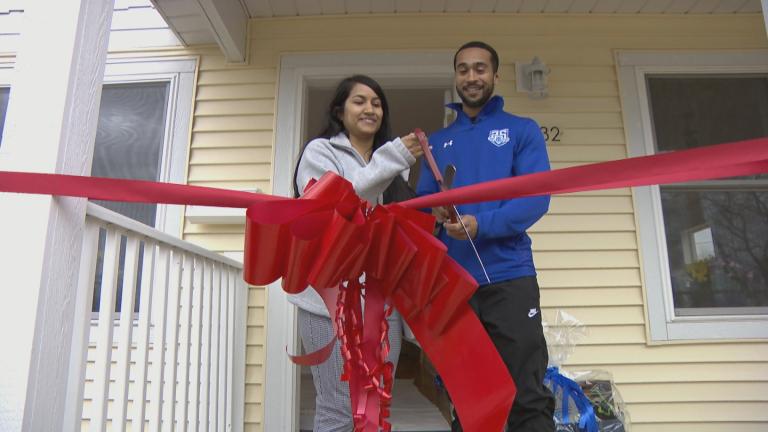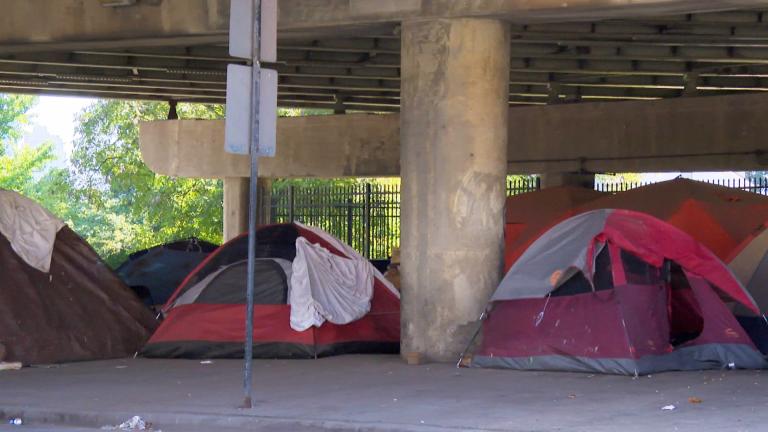
SPRINGFIELD — In 1977, then-President Jimmy Carter signed into law the Community Reinvestment Act, a federal law that sought to wipe away the last vestiges of racial discrimination and redlining in America’s home mortgage industry.
The idea was simple. By requiring lenders — primarily banks — to make credit available in all parts of the communities they served, including low- and moderate-income neighborhoods, the government could redirect the flow of private capital back into areas that had suffered from decades of systemic disinvestment.
Nearly half a century later, many people in Illinois argue the federal CRA has failed to live up to its promise. Whether that’s because the law was too narrow in scope, or because the lending business itself has changed dramatically over the decades, urban metropolitan areas like Chicago are still plagued with crumbling neighborhoods where few lenders are willing to invest.
“My area is the Southeast Side of Chicago, so if you want to talk about Woodlawn, Hyde Park, South Chicago, I mean, these are places where you have a significant amount of folks who are not White and upper-middle class. So yeah, there's been a problem,” state Rep. Curtis Tarver, D-Chicago, said during a recent interview.
Tarver was among the sponsors of a 2021 bill that enacted a new state-level Community Reinvestment Act. Passed during a special lame duck session in January that year, it was part of the Legislative Black Caucus’ “four pillars” of social and economic reform measures that grew out of unrest that began sweeping across minority communities throughout the United States the previous summer.
“There were a few things that happened in 2020,” recalled Jane Doyle of the Chicago-based Woodstock Institute, one of the main backers of the bill. “Of course, the pandemic, the ways that the pandemic exposed racial disparities in our economy and our health care system, pretty much all parts of society. There was the murder of George Floyd and the Black Lives Matter protests that ensued after that.”
But more specific to Chicago and the lending industry, Doyle said, was an investigative news story entitled “Where Banks Don’t Lend,” by public radio station WBEZ and the nonprofit news organization City Bureau. It was released June 3, 2020, less than two weeks after Floyd’s death.
“The sort of big summary data point that came out of that is that there was more mortgage capital invested in one majority-White community in Chicago than all majority-Black communities combined,” Doyle said.
It was against that backdrop that the Legislative Black Caucus pushed through the Illinois Community Reinvestment Act, a part of its “Economic Access, Equity, and Opportunity” pillar.
Unlike the federal law, which applies primarily to nationally chartered banks, the state law applies to state-chartered banks and savings banks, credit unions and non-bank mortgage lenders.
It provides that every institution covered by the law has a “continuing and affirmative obligation to meet the financial services needs of the communities in which its offices, branches, and other facilities are maintained.” It also empowers the Illinois Department of Financial and Professional Regulation to conduct examinations to measure each institution’s compliance with the law.
Much like the federal law, the state law does not impose specific mandates or establish any type of lending quotas on financial institutions. It does, however, require them to report on a periodic basis such things as the number and amount of mortgage loans and small business loans they make, the extent of their marketing activities to make community members aware of their services, and their participation in community development and redevelopment programs.
It also gives IDFPR authority to review those reports and assign rating scores to each institution, classifying their compliance record as either “outstanding,” “satisfactory,” “needs to improve,” or “substantial noncompliance.”
Gov. J.B. Pritzker signed the bill into law March 23, 2021, and the law was supposed to be in full effect by Jan. 1, 2022.
That, however, proved to be more difficult than originally thought. The process of writing administrative rules to implement the law dragged on for nearly three years while regulators and industry officials negotiated the details of what information would have to be reported and how that information would be handled by the agency.
Those negotiations finally came to an end in April when the legislative Joint Committee on Administrative Rules, or JCAR, gave its blessing to the final rules, which now await publication in the Illinois Register before they are considered official.
“I knew it was hotly discussed and debated,” state Sen. Chris Belt, D-Swansea, the bill’s chief Senate sponsor, said in an interview. “I'm not on JCAR so I don't know why it took so long. I know it was a lot of issues and nuances that they were discussing. I'm just glad that is over now.”
Belt is also the lead sponsor of a follow-up bill this year, Senate Bill 3235. It calls on the state’s Commission on Equity and Inclusion to conduct studies that will provide baseline information to identify geographies in Illinois where significant disparities exist in access to financial products and services, along with a listing of existing policies and practices that may have disparate impacts or discriminatory effects.
That bill passed out of the Senate April 18 and now awaits action in the House.
Capitol News Illinois is a nonprofit, nonpartisan news service covering state government. It is distributed to hundreds of newspapers, radio and TV stations statewide. It is funded primarily by the Illinois Press Foundation and the Robert R. McCormick Foundation, along with major contributions from the Illinois Broadcasters Foundation and Southern Illinois Editorial Association.








